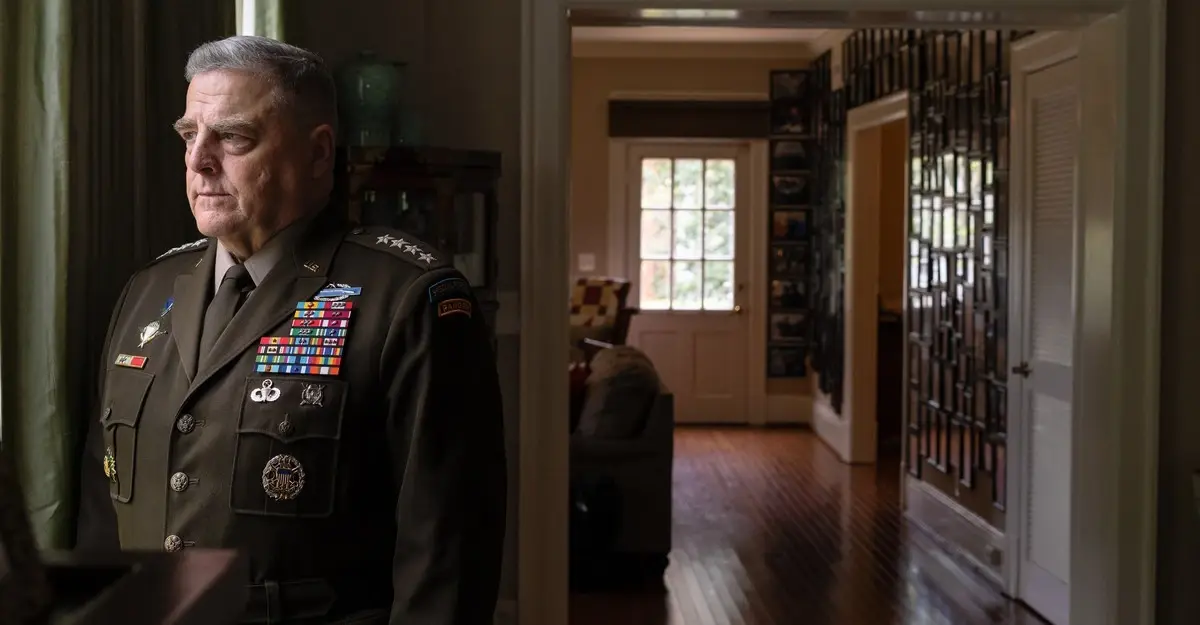- cross-posted to:
- politics@lemmy.world
- cross-posted to:
- politics@lemmy.world
Every one of this post-Trump hagiographies of his former cabinet, staff and advisers ignore their acquiescence or active participation and focus on their "inner " patriotism.
That’s true of everyone who worked for Trump and came into the government as a Trump appointee or staffer, but I would argue Milley is in a different boat. Milley was appointed Army Chief by Obama, and never engaged with the political side of things. He did have some eyebrow-raising proximity to crazy Trump things, but even then was viewed as the least crazy person in the room.
Because “the adult in the room” wants to sell you a book
A long read, but a fascinating one:
…others tried to convince Trump that his rhetoric—publicly mocking Kim as “Little Rocket Man,” for instance—could trigger nuclear war. “If you keep pushing this clown, he could do something with nuclear weapons,” Kelly told him, explaining that Kim, though a dictator, could be pressured by his own military elites to attack American interests in response to Trump’s provocations. When that argument failed to work, Kelly spelled out for the president that a nuclear exchange could cost the lives of millions of Koreans and Japanese, as well as those of Americans throughout the Pacific. Guam, Kelly told him, falls within range of North Korean missiles. “Guam isn’t America,” Trump responded.
Kelly escorted Milley to the Oval Office. Milley saluted Trump and sat across from the president, who was seated at the Resolute Desk.
“You’re here because I’m interviewing you for the job of chairman of the Joint Chiefs of Staff,” Trump said. “What do you think of that?”
Milley responded: “I’ll do whatever you ask me to do.” At which point, Trump turned to Kelly and said, “What’s that other job Mattis wants >him to do? Something in Europe?”
Kelly answered, “That’s SACEUR, the supreme allied commander in Europe.”
Trump asked, “What does that guy do?”
“That’s the person who commands U.S. forces in Europe,” Kelly said.
“Which is the better job?” Trump asked.
Kelly answered that the chairmanship is the better job. Trump offered Milley the role. The business of the meeting done, the conversation then veered in many different directions. But at one point Trump returned to the job offer, saying to Milley, “Mattis says you’re soft on transgenders. Are you soft on transgenders?”
Milley responded, “I’m not soft on transgender or hard on transgender. I’m about standards in the U.S. military, about who is qualified to serve in the U.S. military. I don’t care who you sleep with or what you are.”
Trump called Gallagher a hero and said he didn’t understand why he was being punished.
“Because he slit the throat of a wounded prisoner,” Milley said.
“The guy was going to die anyway,” Trump said.
Milley answered, “Mr. President, we have military ethics and laws about what happens in battle. We can’t do that kind of thing. It’s a war crime.” Trump answered that he didn’t understand “the big deal.” He went on, “You guys”—meaning combat soldiers—“are all just killers. What’s the difference?”
🤮
Baffling.
Terrifying stuff



